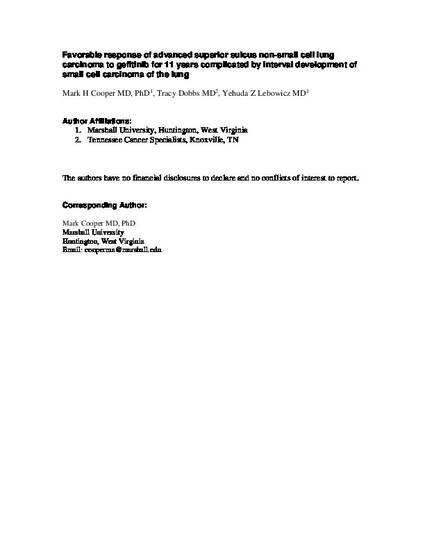
- Gefitinib,
- Lung cancer
Gefitinib is a medication that was originally developed as an epidermal growth factor receptor (EGFR) blocker. It has been used to treat non-small cell lung cancer with varying success. We describe a patient who presented with Pancoasts syndrome and after being deemed surgically unresectable had limited success with chemotherapy and radiation but had an excellent response to the medication Gefitinib. The patient was disease free for several years and after 11 years of follow up with CT scans, a PET CT showed an isolated area of FDG avidity which on biopsy was small cell carcinoma of the lung. The patient had been maintained continually on Iressa for 11 years. Gefitinib treatment and continuing EGFR blockade invariably result in resistance to the medication and ultimate relapse. However in the present case, presumed sensitivity of the original tumor was noted for a prolonged time period, with development of either a new, small cell lung cancer, or histologic transformation. Similar cases have described this phenomenon of epithelial cancers treated with tyrosine kinase inhibitor blockade and development of small cell lung cancer however our case is unusual in that this transformation is observed over an eleven year time horizon.
Available at: http://works.bepress.com/mark-cooper/4/
